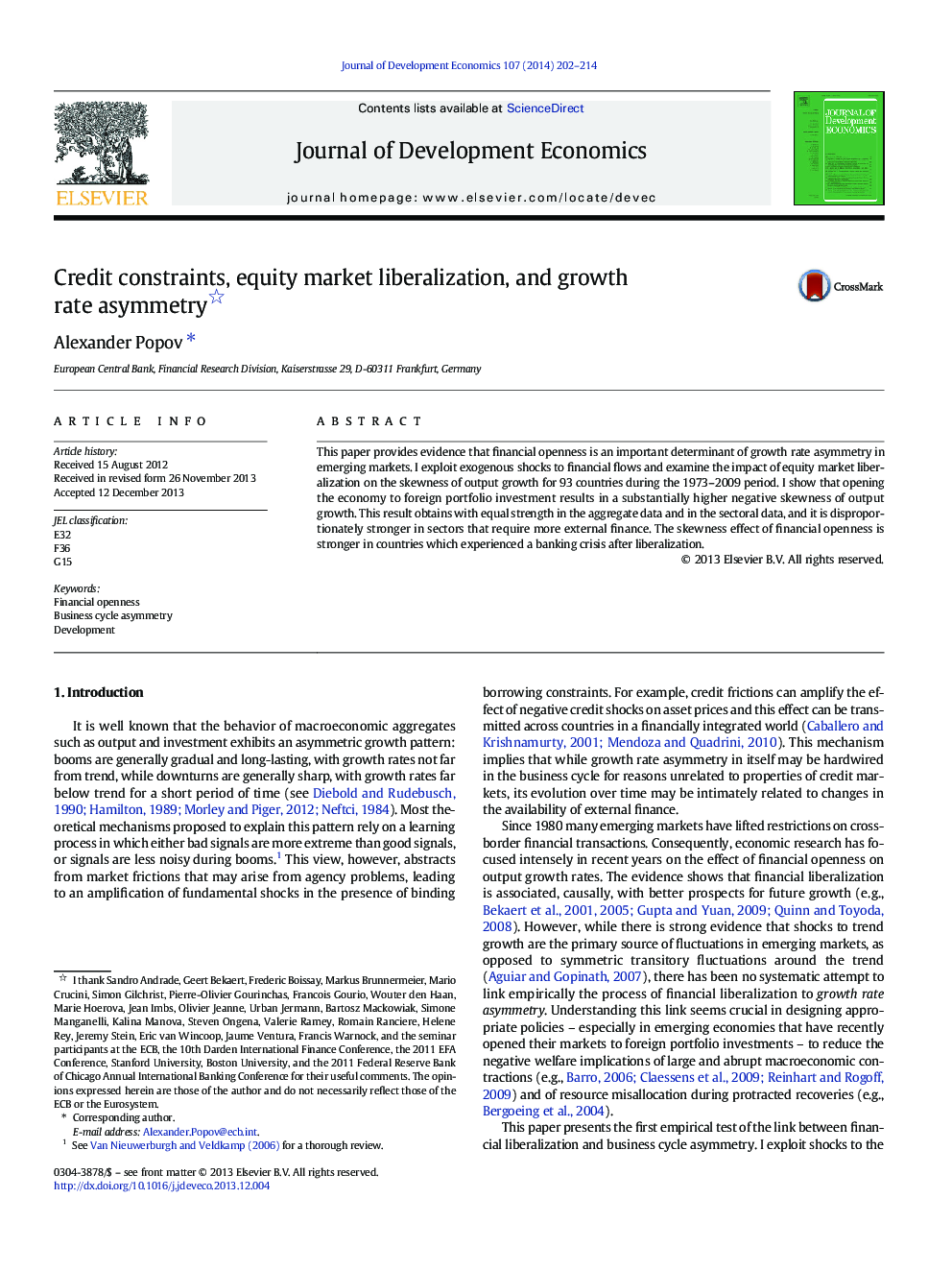| کد مقاله | کد نشریه | سال انتشار | مقاله انگلیسی | نسخه تمام متن |
|---|---|---|---|---|
| 5094651 | 1478504 | 2014 | 13 صفحه PDF | دانلود رایگان |

- Equity market liberalization has a negative effect on output skewness.
- This result obtains with equal strength in aggregate and in sectoral data.
- The effect is stronger if liberalization was followed by a banking crisis.
- A propensity score matching procedure is used to strengthen the causality claim.
- The results relate to recent open economy RBC models with financial frictions.
This paper provides evidence that financial openness is an important determinant of growth rate asymmetry in emerging markets. I exploit exogenous shocks to financial flows and examine the impact of equity market liberalization on the skewness of output growth for 93 countries during the 1973-2009 period. I show that opening the economy to foreign portfolio investment results in a substantially higher negative skewness of output growth. This result obtains with equal strength in the aggregate data and in the sectoral data, and it is disproportionately stronger in sectors that require more external finance. The skewness effect of financial openness is stronger in countries which experienced a banking crisis after liberalization.
Journal: Journal of Development Economics - Volume 107, March 2014, Pages 202-214